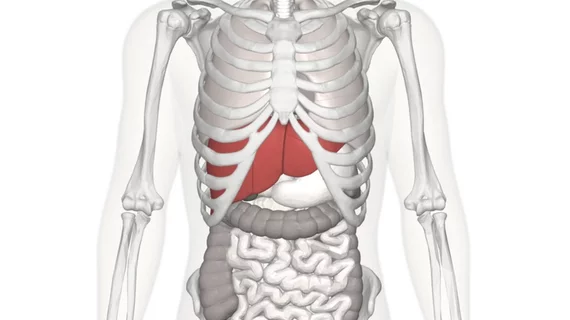For monitoring purposes, AI-aided MRI does what liver biopsy does with less risk, lower cost
Patients with autoimmune hepatitis may be better monitored across disease stages by AI-augmented multiparametric MRI than by liver biopsy, as the imaging has proven less costly and is inherently less risky due to its noninvasiveness.
Researchers in the U.K. made the finding and have reported its particulars in a study posted this month in BMJ Open [1].
Led by healthcare economist Mamta Bajre, MBBS, MSc, of Oxford Academic Health Science Network, the team followed 100 patients with moderate to severe autoimmune hepatitis for five years.
Autoimmune hepatitis is a chronic inflammatory condition brought on when the immune system attacks the liver.
The researchers assessed each patient’s cost to the National Health Service based on published NHS payment rates and average expenses for biopsy-related adverse events.
They performed sensitivity analyses to model the costs of serial AI-aided mpMRI scanning against the fixed prices of liver biopsy.
This initial economic modeling showed patients monitored with an annual mpMRI scan rather than liver biopsy would save U.K. healthcare a minimum of £232,333 (equal to around $249,307).
In addition, the authors report:
- Per 100 mild/moderate autoimmune hepatitis patients receiving three mpMRI scans over five years, estimated minimum cost savings were £139,400 (~$149,587).
- One-way sensitivity analyses showed increasing the frequency of mpMRI exams from five to 10 scans over five years in moderate/severe autoimmune hepatitis patients results in a cost saving of £121,926 (~$130,857).
- In patients with mild/moderate autoimmune hepatitis, an increase from three to six mpMRI scans over five years could save £73,156 (~$78,514).
Even in a “minimalistic” model—one that replaced two liver biopsies over five years with annual mpMRI over the same period—the imaging option brought back potential savings of £5770, equal to around $6,193, Bajre and co-authors point out.
Overall, they comment, the present analysis suggests that “the integration of non-invasive AI-mpMR scanning in autoimmune hepatitis patient pathways has the potential to improve the monitoring care pathway and may result in cost savings for autoimmune hepatitis patients in secondary care in the NHS in England.”
Just as important, Bajre and co-authors suggest, more frequent and detailed phenotyping facilitated by AI-aided mpMRI “could lead to improvements in patient outcomes, such as better titrated immunosuppression for individual patients.”
More:
With more research data from clinical trial and real-world usage monitoring, a more in-depth economic evaluation of the impact on the adoption of mpMRI into the autoimmune hepatitis patient monitoring pathway can be produced.”
The authors note that biopsy cannot be replaced for diagnosing autoimmune hepatitis, only for monitoring the condition.
They disclose that two members of the research team are or were employed by Perspectum, the vendor whose AI product, LiverMultiScan, was used in the study.
The study is posted in full for free, and Perspectum publicized the research in a Sept. 21 press release.

